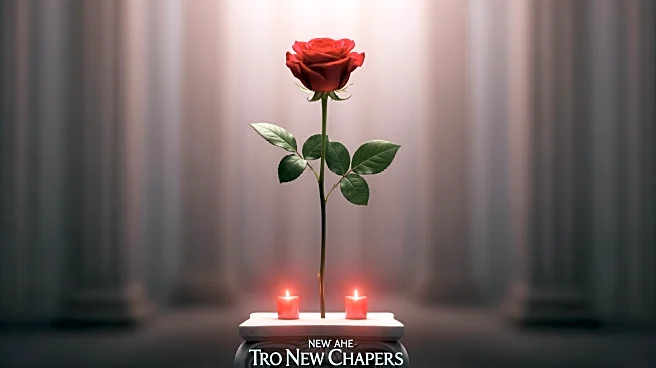What's Happening?
ABC has announced Taylor Frankie Paul, a social media influencer, as the next lead for The Bachelorette in 2025. This marks the first time a non-Bachelor alumna will lead the show, a decision that could
alter audience demographics and sponsorship dynamics. Taylor Frankie Paul, known for her presence on MomTok, brings a substantial following of 7 million across social platforms, offering ABC a new promotional reach. The timing coincides with the release of the third season of her Hulu series, Secret Lives of Mormon Wives, in November 2025, suggesting a strategic cross-promotion between ABC and Hulu.
Why It's Important?
The casting of Taylor Frankie Paul represents a significant shift in reality TV strategy, as networks like ABC aim to leverage social media influence to boost ratings and attract younger viewers. This move could disrupt traditional casting norms within Bachelor Nation, potentially alienating long-time fans while attracting a new audience. The decision reflects broader industry trends where streaming platforms and network television increasingly intersect, influencing how shows are marketed and consumed. Advertisers and producers are closely monitoring the impact of this cross-platform strategy on viewer engagement and retention.
What's Next?
As Taylor Frankie Paul transitions from streaming to network television, ABC will need to navigate potential challenges in maintaining viewer interest across platforms. The success of this casting decision will depend on whether her existing fan base can be converted into regular viewers of The Bachelorette. ABC's approach to integrating her brand with franchise traditions will be crucial in determining the show's long-term success. The network may face pressure to adapt its promotional strategies and content to align with the influencer-driven audience.
Beyond the Headlines
This casting decision highlights the evolving nature of reality TV, where social media influence increasingly dictates casting choices and audience engagement strategies. The integration of platform-native stars into traditional network formats could redefine casting playbooks and advertising strategies, potentially leading to more cross-platform collaborations in the future. The cultural implications of this shift may challenge established norms within reality TV, prompting discussions about authenticity and the role of influencers in shaping media narratives.










